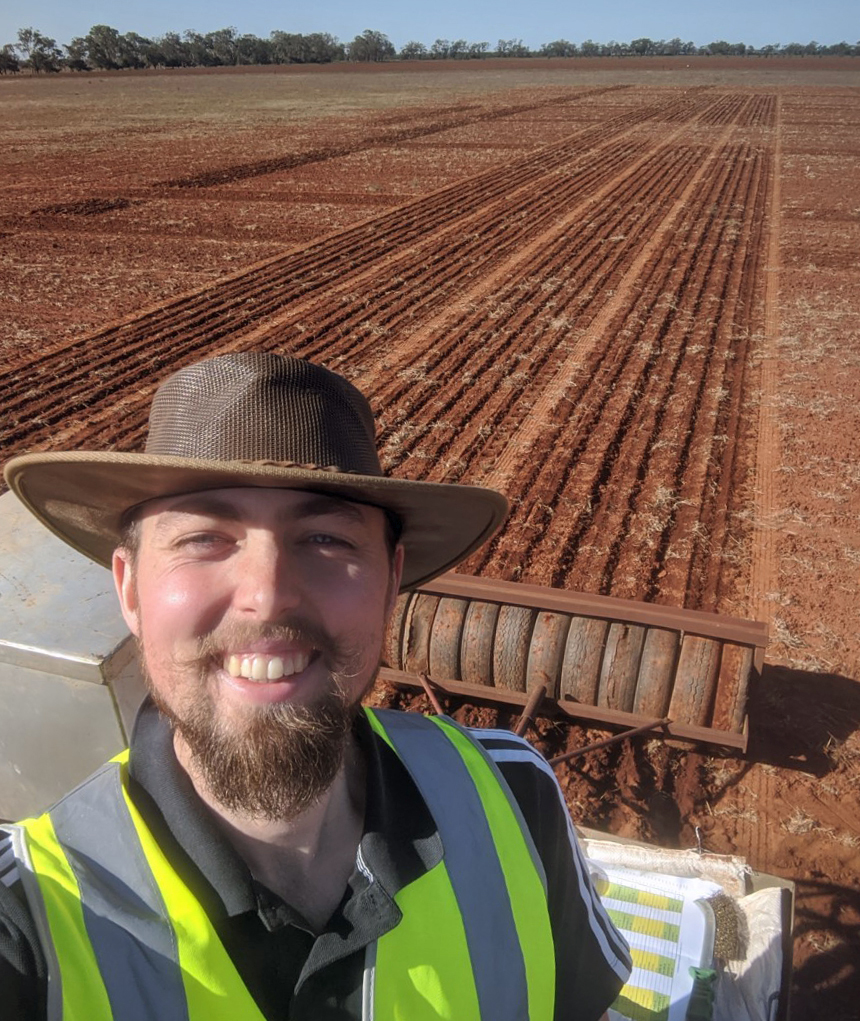
An initiative to identify talented young scientists and foster their research skills is yielding results for grain growers in southern NSW and Victoria.
NSW Department of Primary Industries (DPI) Southern Cropping Systems director, Deb Slinger, said NSW DPI graduate research officers, Jessica Simpson and Reuben Burrough, are now working with leading national researchers to hone their capacity to deliver solid results.
“The Grains Agronomy & Pathology Partnership (GAPP) between NSW DPI and the Grains Research and Development Corporation (GRDC) is supporting a two-year intensive research and training program,” Ms Slinger said.
“Ms Simpson and Mr Burrough are mentored by NSW DPI lead researchers and collaborate with other leading researchers across the country.
“Working in the areas of pulse and cereal agronomy and physiology they attend GRDC Updates and network with agribusiness, growers, farm businesses and key researchers in the northern grain growing region, which covers NSW and Queensland.”
Based at the Wagga Wagga Agricultural Institute, Ms Simpson is working to identify the key physiological drivers behind crop development and yield formation through a project which aims to deliver an improved model of late maturity alpha-amalyse field risk in Australian wheat.
“This research will contribute to the development of agronomic packages for farmers by improving knowledge of commercial cultivars and how they can better fit local environments,” Ms Simpson said.
“Research is a team effort and we ensure liaison between researchers and technical staff supports consistent protocols and effective data collection.”
Mr Burrough actively contributes to farming systems trials at the Condobolin Agricultural Research and Advisory Station and Yanco Agricultural Institute.
“I’m involved in field work, data collection and analysis which helps deliver a GAPP project which aims to improve farming systems efficiency in southern NSW,” Mr Burrough said.
“As part of a productive team, I am helping generate and interpret data which will inform growers and develop the industry.”
GAPP recruits recent graduates to work in high priority areas, which ensures succession planning and capacity building occurs in critical research areas.





